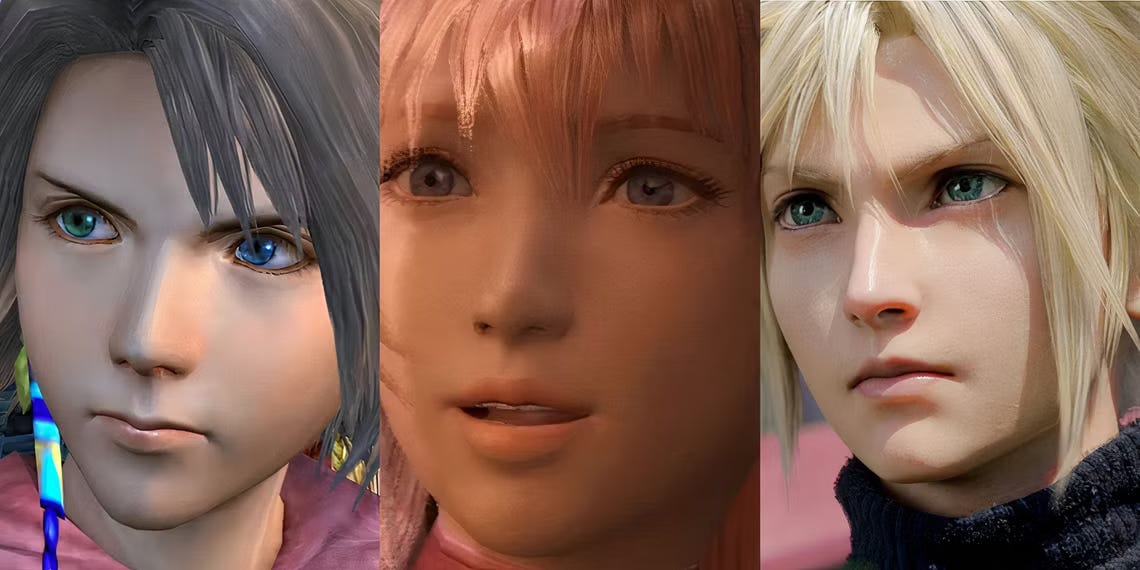5 Final Fantasy Games Were Your Decisions Matter The Most
Five Final Fantasy Games Where Your Choices Have the Biggest Impact
Five Final Fantasy Games Where Your Choices Truly Matter
Final Fantasy has long been revered for its captivating storytelling, memorable characters, and immersive worlds. While the series is often known for its linear narratives, there are certain titles where player choices significantly impact the gameplay, character relationships, and even the ending. Here are five Final Fantasy games where your decisions hold the most weight.
Final Fantasy 7 Rebirth – Shaping Relationships and Loyalty
The remake of the legendary Final Fantasy 7 introduces a more intricate relationship system, allowing players to influence Cloud's interactions with his party members. Throughout the game, dialogue choices determine character affinity, affecting everything from unique cutscenes to who Cloud ends up dating later in the story. While the game doesn’t feature drastically branching paths or multiple endings, the way party members respond to Cloud and interact with him is heavily influenced by player decisions, making every choice feel meaningful.
Final Fantasy 14 – Player-Driven Questlines and Character Progression
As an MMO, Final Fantasy 14 offers an unparalleled level of player freedom, not just in customization and exploration but also in quest progression. Unlike traditional Final Fantasy games, where the narrative follows a set path, FF14 allows players to shape their journey through branching questlines. Early in the game, players make crucial decisions regarding their character’s class and alliances, influencing the story’s progression and the experiences they’ll encounter along the way. The level of choice and freedom in this title makes it stand out among other entries in the series.
Final Fantasy 6 – A Dynamic and Character-Driven Ending
Final Fantasy 6 offers one of the most unique endings in the series, as it changes based on the characters recruited throughout the game. While a few key party members are required for the story, many others are optional, and each one contributes to the final scenes. Depending on who the player chooses to recruit and how relationships develop, the ending can shift in subtle but meaningful ways. This feature was ahead of its time, making Final Fantasy 6 one of the most replayable entries in the series.
Final Fantasy 13-2 – The Power of Choice and Paradox Endings
Unlike its predecessor, which was criticized for its linearity, Final Fantasy 13-2 embraces choice-driven storytelling, introducing multiple paradox endings. Throughout the game, players make crucial decisions that affect the narrative, leading to a variety of alternate conclusions. While only one ending is considered canon, the paradox endings provide fascinating glimpses into alternate realities and character fates, making player choices feel impactful even if they don’t lead to the definitive outcome.
Final Fantasy 10-2 – Decisions That Shape the Fate of Spira
Final Fantasy 10-2 takes a more fluid approach to storytelling, offering multiple endings based on player actions. Throughout the game, choices influence Yuna’s journey, particularly in regard to her relationship with Tidus. The game features two major endings and two secret ones, with numerous variations based on the player's decisions. Additionally, the final battle includes an unseen timer—if players take too long, they may be forced into a bad ending. This level of interactivity ensures that every choice matters, making for a highly personalized experience.
Final Thoughts
While Final Fantasy games are often known for their structured narratives, these five entries prove that player choices can play a significant role in shaping the story and gameplay experience. Whether it’s forging deep relationships, unlocking alternate endings, or influencing quest progression, these games ensure that every decision carries weight, making for an unforgettable journey.


